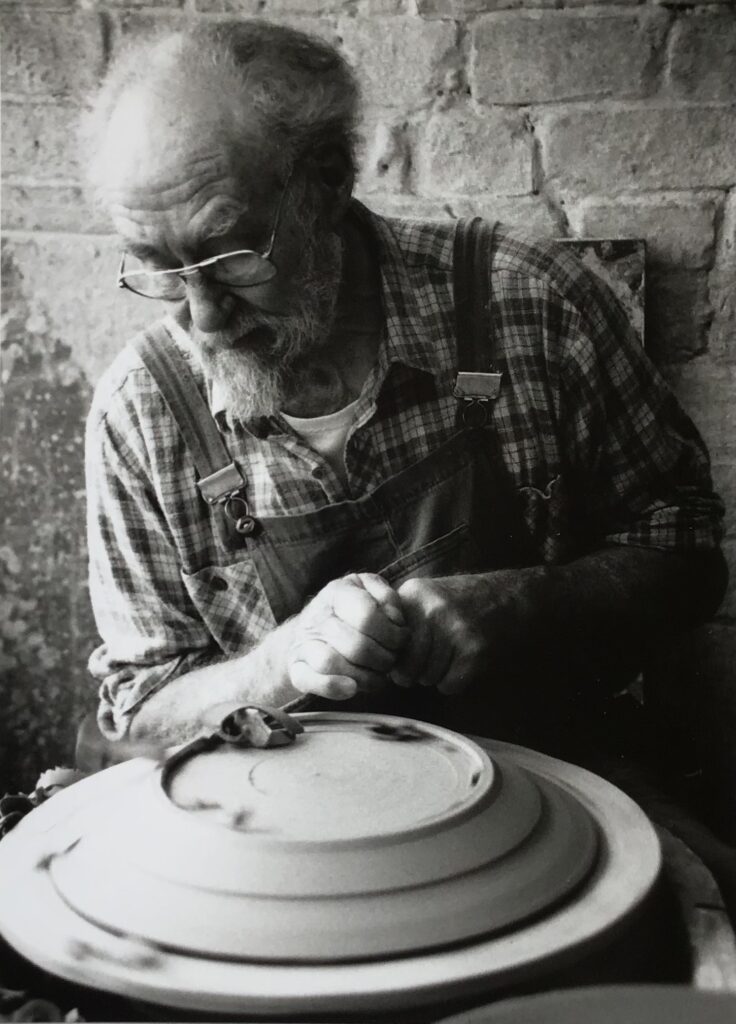
“It takes a good many years to make a hundred pots that look the same, repetition takes a long time to learn.”
Ray Finch spent most of his life making practical, affordable pottery that people could use every day. He produced simple, elegant forms, glazed in natural tones with subtle variations that were achieved through traditional glazing and firing processes.
As a young man, Finch was impressed by the Winchcombe pottery he saw at a friend’s house. From that point he was committed to learning the craft himself. Aged 21, he visited Michael Cardew (1901-1983), the head of Winchcombe Pottery, Gloucestershire, hoping to become an apprentice. With no experience, Cardew gave him ‘a polite brush off’ and told him to get some formal training. He then spent the next year studying under Dora Billington (1890-1968) at the London Central School of Art. Afterwards, he returned to Winchcombe and was allowed to join the team.
In 1939, Cardew left Winchcombe to set up another pottery at Wenford Bridge, Cornwall, leaving Finch in charge. The idea was to run both potteries together, however, the Second World War put an end to their plans. After the war, Finch bought Winchcombe Pottery, and, with the help of Sidney Tustin (1914-2005), produced wood-fired slipware fired in a bottle kiln. The business had to adapt to become sustainable and by the mid-1960s, production had moved completely towards stoneware using an oil-fired kiln. A wood-fired kiln was built in 1974 and the pottery has been wood firing ever since.
Cardew’s training had installed the value of team working and Winchcombe was home to many distinguished potters over the years, including John Leach (1939-), Nina Davis (1946), Robert Blatherwick (1920-1993), and Colin Pearson (1923-2007).
Ray Finch also helped found the Craftsmen Potters Association of Great Britain in 1958. His contribution to ceramics was rewarded with an MBE in 1980, and a Lifetime Achievement Award in 1999 at the International Ceramics Festival, Aberystwyth. He continued making pottery until he passed away at the age of 97.
Winchcombe Pottery continues today as a family run business. This exhibition features works on loan from the family members as well as pieces from the University’s Ceramics Collection.
25/01/2025- 08/06/2025




